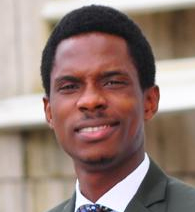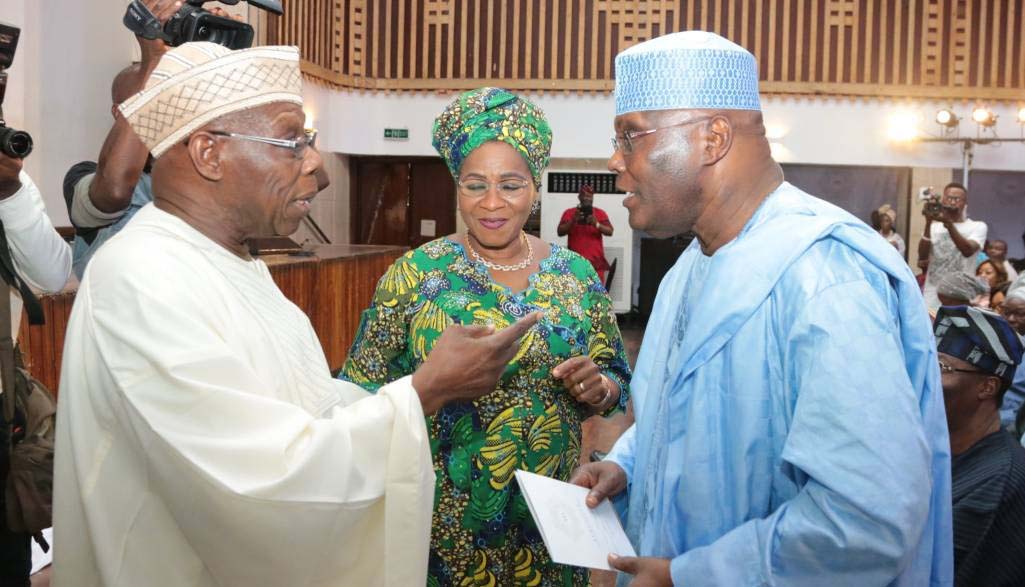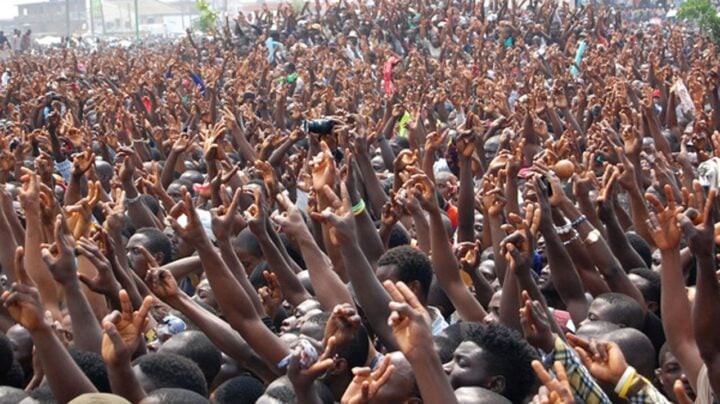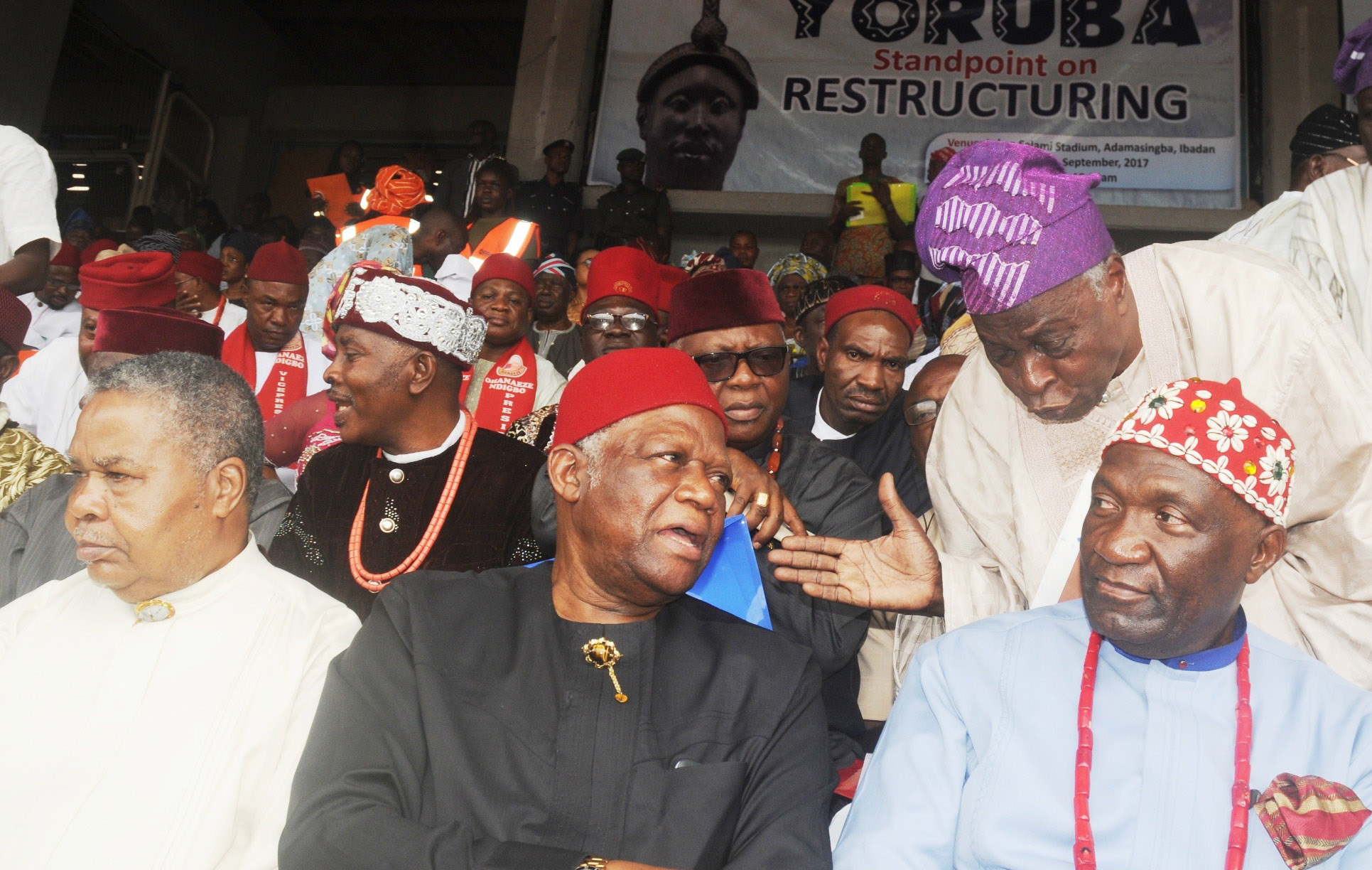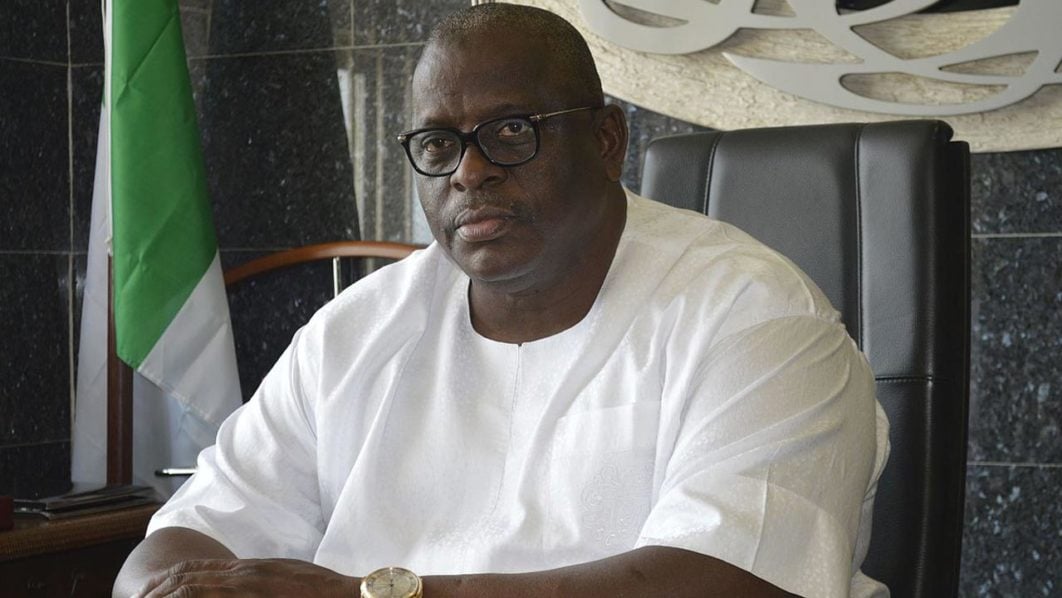Nigeria is a country of incredible promises and unbelievable paradoxes. Despite being the ‘Nummer Eins’ on the world poverty chart and performing abysmally in other developmental indices, it is believed that we are generally a country of a good number of highly cerebral and successful individuals. And that is true. Without breaking a sweat, several names easily come to mind. We have the Dangotes, Ovias, Elumelus, Rabius, Adelekes, Otedolas, Adenugas, Chukwumas, Okonjo-Iwealas, Adesinas, the list goes on. These are people who by their exploits, whether in business or engagements in other areas, have done themselves and their country proud. It is quite easy to understand why many young people in Nigeria, and on the continent, look up to them and some others as role models. The young people pray to achieve the same level of excellence as these people have. They even sing about them.
Teniola – the popular Nigerian artiste had this line in one of her biggest hits – Case: “but my papa no be Dangote or Adeleke but we go dey ok.” That’s just one of many others as there’s hardly any hit song in Nigeria without the ‘wish’ to be like these ‘billionaires’. And it’s quite understandable. But that’s not the story. These Nigerians and several others doing great exploits in business, education, entertainment, medicine, sports, tech, and even global politics have consistently been the sterling poster personalities for Nigeria – a country that has refused to get its act together for so long; one that has refused to move to make the most of its potentials – a situation worsened by years of leadership failure. And that’s where the story begins.
We are a great country with an enviable heritage but a chequered history. Like many countries, we have had our share of good, bad, and extremely ugly situations. But unlike some of these other countries that have refused to be tied to the shackles of the past, if there’s anything we do with our past, it’s that we don’t learn the right lessons, that’s if we learn anything. George Santayana said it first, and he put it quite aptly that, “those who do not remember the past are condemned to repeat it.” That’s exactly our problem. We just don’t learn. And we know this to be true; we know where we are coming from and we know where we are. Has much changed for the better, or best? Of course, the answer is no! After almost 60 post-independent years and 21 unbroken years in our present Fourth Republic, the leadership narrative is still the same. Still the same do-your-own-make-I-do-my-own narrative or to call it by its proper name – turn-by-turn fixation. And we, the people, are to blame for this descent into the depths where reason is choked to death; where excellence is shown the door and where merit is displaced by mediocrity of the starkest order.
There’s a conversation that needs to be had, now, and it must be a serious sustained conversation until everyone gets it. We are the quickest to berate people that have not ‘achieved’ or ‘arrived’ by a certain age. Your neighbour has just clocked 30 years and you are the quickest to ask why she’s not married and you are comparing her to a friend who, at 29, is married and has three kids. We are the biggest proponents of the ‘At-your-age’ theory that states categorically that ‘until you have attained a particular level at a particular age, you’ve failed in life.’ If we applied this theory that we so readily activate on our fellow Nigerians, then it is clear we have failed after 21 years of democracy in the Fourth Republic. And the biggest problem is our approach to leadership.
Advertisement
We have had six major elections since the beginning of this Fourth Republic. To the extent that we have had successful transitions between governments, we can boldly declare that we have made progress. But to the extent of getting quality, able and visionary leadership, we also can boldly assert that we haven’t made any progress. In the last 21 years, our Gross Domestic Product has grown from about 60 billion USD to over 400 billion USD, making it Africa’s largest economy but the ripples of this growth are not felt by the majority of Nigerians. Currently, more than 90 million Nigerians live in extreme poverty. With about 65% of the population under the age of 35 and unemployment sitting at about 23%, the pointers are clear that more people will slip into the poverty net if nothing positive is done soonest.
The government knows and is overwhelmed by the enormity of the tasks ahead. This menace was not created by one government, but we certainly wouldn’t be discussing Nigeria as the headquarters of global poverty if the best of us were at the helm of state affairs at all levels. If after six elections and a change of baton between two political parties, we still haven’t figured that the current turn-by-turn thing isn’t working, then something is wrong somewhere. And if something is not working, the only reasonable thing to do is to change it. ‘Once bitten, twice shy’ is a good message with an ever-resonating impact but we seem, unfortunately, to not only fall twice but to fall all the time. This turn-by-turn mentality has ‘produced leaders’ at both federal and state levels but has that arrangement produced anything remarkable?
You can trust politicians to do and say what they can best – put the interest of a few ahead of the interest of most. And 2023, although 3 years away, is about the most recurring political subject at the moment and would continue to be so. Almost anyone who can say something has said something; including those responding to those who said something on where the presidency should be ‘zoned’ to. Should it go down the political compass? Or should it remain where it is? This is about the only issue that matters to the politicians. 2023 is here, already and so the issues of development can take the back seat while the inglorious politicking continues. That’s how you know a country is not serious.
Advertisement
How do we stem the tides of insecurity? How do we get our industries back up? How do we revitalise our economy? How do we put our people to profitable work? How do we lift tens of millions out of extreme poverty? How do we raise the quality of education at all levels? How do we revive our comatose health sector? How do we become the country of reference in a fast-changing world? These are some of the questions. And visionary leadership is a great place to start.
Before us is a great opportunity in the name of COVID-19. The current experience with the pandemic is a perfect test for us as a country to inform how we must begin to think about the kinds of people we entrust with public office at all levels. Amid all the actions being taken by federal and state executives – both reasonable and unreasonable, people can begin to separate those with great plans and vision from the completely clueless and visionless ones.
This country will be brought to its knees if we allow business to continue as usual. This is also a call to all citizens, regardless of their creed, to think Nigeria first. While politicians will go ahead with the usual permutation on the best candidates (based on ethnic nationalities) to win elections for their parties, we must be able to shun non-progressive sentiments and put Nigerians and the future of Nigeria first. This narrative must be sustained, though it is an incredibly difficult task considering how disunited the country is. There’s just too much at stake. If we do nothing, then we are all complicit in creating a messy situation where the country stagnates because power rotates. Who are we ‘doing’?
Advertisement
Views expressed by contributors are strictly personal and not of TheCable.
